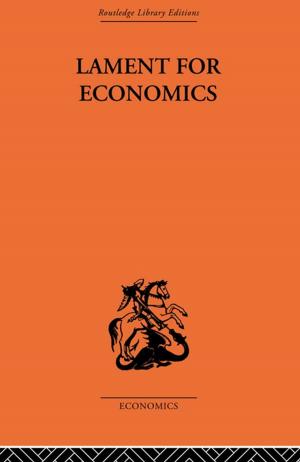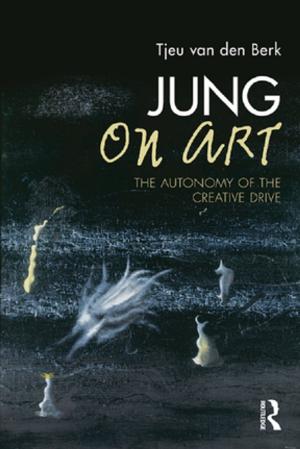Henry Irving
A Re-Evaluation of the Pre-Eminent Victorian Actor-Manager
Fiction & Literature, Literary Theory & Criticism| Author: | ISBN: | 9781351156462 | |
| Publisher: | Taylor and Francis | Publication: | November 30, 2017 |
| Imprint: | Routledge | Language: | English |
| Author: | |
| ISBN: | 9781351156462 |
| Publisher: | Taylor and Francis |
| Publication: | November 30, 2017 |
| Imprint: | Routledge |
| Language: | English |
Henry Irving (1838-1905), the first actor to be knighted, dominated the theatre in Britain and beyond for over a quarter of a century. As an actor, he was strikingly different with his idiosyncratic pronunciation, his somewhat ungainly physique, and his brilliant psychological portrayals of virtue and villainy. As a director of spectacular, and commercially driven, entertainments, Irving anticipated Hollywood directors from D.W. Griffith to Stephen Spielberg. And as manager of the Lyceum Theatre, where audiences included the leading public figures of the day, he controlled every aspect of the performance. This collection of essays by leading theatre scholars explores each element of Irving's art: his acting, his contribution to the plays he commissioned, his flair for the stage picture, and his ear for incidental music. Like Wagner, Irving was a proponent of a holistic approach to the stage, that is, blending together acting, painting, music, and architecture to create harmonious, balanced, and artistic theatre. Irving emerges not only as the peer of such eminent contemporaries as Tennyson, Sullivan, Shaw, and Burne-Jones, but also as a powerful influence on the twentieth-century theatre.
Henry Irving (1838-1905), the first actor to be knighted, dominated the theatre in Britain and beyond for over a quarter of a century. As an actor, he was strikingly different with his idiosyncratic pronunciation, his somewhat ungainly physique, and his brilliant psychological portrayals of virtue and villainy. As a director of spectacular, and commercially driven, entertainments, Irving anticipated Hollywood directors from D.W. Griffith to Stephen Spielberg. And as manager of the Lyceum Theatre, where audiences included the leading public figures of the day, he controlled every aspect of the performance. This collection of essays by leading theatre scholars explores each element of Irving's art: his acting, his contribution to the plays he commissioned, his flair for the stage picture, and his ear for incidental music. Like Wagner, Irving was a proponent of a holistic approach to the stage, that is, blending together acting, painting, music, and architecture to create harmonious, balanced, and artistic theatre. Irving emerges not only as the peer of such eminent contemporaries as Tennyson, Sullivan, Shaw, and Burne-Jones, but also as a powerful influence on the twentieth-century theatre.















